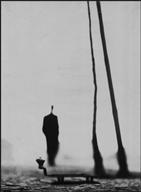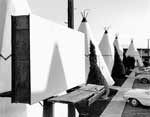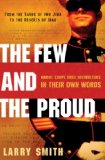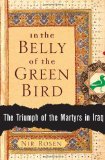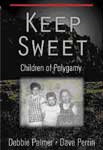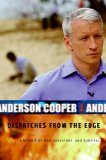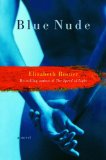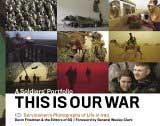
Keep Sweet; Children of Polygamy, by Debbie Palmer & Dave Perrin. Grade, regular reader: D; Polygamy-obsessed: B.
Picked up a signed copy of Keep Sweet at a small bookstore in Creston, BC, just a few kilometers from where the events in the book took place. The inscription from Debbie Palmer, “Hope you enjoy” struck me as odd from the start, but especially when I got to this paragraph:
Early one Friday morning, I was stuck in the only bathroom in the house, vomiting. I threw up green, slimy liquid, then was hit with a terrible attack of diarrhea. Children soon started pounding on the door. Sharp pains stabbed my right side, and a flush of fever left me sweating and weak. I crumpled in a ball onto the floor, unconcerned that I was lying in my own mess. A stern command from Daddy brought me to my feet, and I unlocked the door.
Hope you enjoy? Um, okay.
This book isn’t what I thought it would be. Coming from a woman who left polygamy after three tough marriages and apparent trauma, you expect a strong voice speaking out against, what I would think she feels, is a lifestyle incompatible with equal rights for women. But Palmer isn’t that speaker. She was a believer and her story seems pretty honest. She takes some shots, but then portrays herself as almost an idiot. The book is less an anti-polygamy diatribe from an exile than a look into the fundamentalist religion of intense faith and, often, poverty. It is a religion at odds with Canadian and US law:
Uncle Isaac called the whole family to evening meetings and firesides. He would read from a book called Jonathan Livingston Seagull by Richard Bach. Over and over he told us, “When it is my time to die, which could be anytime, none of you will ever see my face again, let alone the face of Christ, if you are not prepared to suffer as Christ suffered. You people cannot expect to slide into the celestial kingdom on someone else’s coattails. You’ve got to suffer and sacrifice and be maligned and hated. Do you think the world will love you if you’re doing the Lord’s will? We can be dull, stupid, and common like all the other seagulls on the shore fighting for the rotten, stinking fish, or we can soar like Jonathan Livingston Seagull into the next life with a celestial vision.” Uncle Isaac was firece and bold and we loved it. I became determined I would be a high-flying seagull, no matter what the pain or sacrifice.
Put aside the polygamy, the religion here is fierce and fundamental. The polygamist leaders in Keep Sweet are very intense in their beliefs, and the religion is portrayed by Palmer as one where fear is the key motivation:
Joseph White Musser decreed the Lord required us to bring our earthly needs and desires under subjugation “every whit” before we’d be allowed to parent these choice spirits. When a woman was married to a man for all eternity, she shouldn’t think she could let her passions run loose in the way of the gentile world. He said the Lord’s commandment to multiply and replenish the earth has an order.
“We watch the animals of the earth and see that they follow the natural order the Lord has designed for them. Therefore we must counsel together as husbands and wives and find out the time when we may conceive, and otherwise bring the passions of the flesh under control so our energy will be used in serving the Lord.” This commandment weighed heavily on the woman; if she deceived her husband and did not inform him of the proper times, she would be guilty of adulterating the birth canal, and the consequences would be “dire and severe.” There was a short verse at the end of the passage: “Sow in the morn thy seed, In the eve hold not thy hand.”
I wish this book had been edited more tightly. It seems as if Palmer is trying to get every last detail and every event in here, and a lot of it doesn’t move the story along. And the book ends before she leaves the group. But I think Palmer tells it the way it was, and often it’s as unflattering to her as it is to the fundamentalist religion she left behind. Don’t read this book expecting to find a hero, or even a sympathetic character. It’s more interesting as an insight into religion. I think that was most valuable to me: reading the experiences of someone who spent some time around polygamist prophet LeRoy S. Johnson and other insights into the FLDS fundamentalist mormon religion:
We were truly blessed that our prophet and his apostles visited Canada every three months now so they could update us on what God had in mind for his people. They arrived shortly after the gentile media made a big fuss about the United States being the first world power to build a spaceship and send a man to walk on the moon. Newspapers, radio, and television were talking non-stop about beating Russia in the race for space. We were all excited, and most everyone managed to find a television to watch “the moonwalk” over and over again. Uncle Isaac reminded us that our prophet had said, “God would never, worlds without end, allow a man to walk on the moon. The moon and all the celestial bodies in the heavens were protected from man by God, and He would never allow man to reach any of His creations off this earth.”
That certainly dampened the excitement in our group, and some of the kids were even wondering if the prophet had been wrong. We all stopped talking about it until he arrived to explain to us why the newspapers and television were contradicting what he’d told us. We were relieved to find out how Satan had inspired the government of the United States to create fake pictures of the moonwalk in order to further trick and confuse people on Earth. After the meeting, everyone was distraught to discover the lengths the devil would go to make people “believe a lit and be damned.” Jan immediately included the prophet’s teachings about the treachery of the gentile nations in our classes at school so we wouldn’t be tempted to believe what we heard on television or happened to read. We just needed to be very sure to remember that Satan’s number-one tool to deceive and destroy people through temptation was television.
Keep Sweet; Children of Polygamy, by Debbie Palmer & Dave Perrin. Grade, regular reader: D; Polygamy-obsessed: B.







